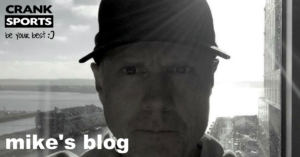Dealing With Injuries
dealing with injuries
I like to say that there’s two types of athletes: those that are injured and those that will be. Actually I don’t enjoy saying that, but it’s a fact of life. This is particularly true for runners because of the pounding that the body takes with each stride. Even if you are genetically blessed with very few injuries, none of us can out run the aging process. The internet is full of articles on how to reduce your risk of injuries and how to heal them when they occur. What I want to talk about is how to mentally prepare yourself for injuries and deal with them when they occur.
a little background on me and injuries
I have been a competitive runner virtually my entire life, and at my peak I was regularly running 120 miles a week. I had a load of small injuries, but I learned how to work through them. My goal was to qualify for the olympic trials in the marathon, and “on paper” I should have made it. Unfortunately, injuries had a different plan for me. In the race that I was attempting to qualify, I went through the half in sub 1:08 (qualifying at the time was 2:20). I was well ahead of pace at mile 22 when I was forced to drop out due to an injury that put me out of the sport for more than 3 years. Suffice it to say I was devastated. Looking back now I choose to view it as a blessing in disguise, as so often is the case. My post-surgical therapy led me directly to the girl that I would marry and become the mother of my 3 children. So if it hadn’t been for that injury, today I wouldn’t have the people that are most important to me in my life. There’s a bright side to everything if you choose to see it!
preparing yourself
In my job here at Crank Sports since 2001, I have been dealing with athletes at all levels of sport – from weekend warriors to professional athletes. Many of them are completely addicted to their sport – they eat, breath and sleep it. Many of you reading this probably are as well. There’s nothing wrong with that, except for that fact that at some point an extended time off will be forced on them one way or another. And so often they are completely unprepared to deal with it. When the main thing in your life is taken away without warning, it’s devastating.
But I would argue that it’s not without warning. It’s going to happen at some point. Being aware that every day of running healthy (or cycling, swimming, etc.) is a gift, and that the gift can and will be taken away from time to time, is an important lesson for every athlete.
The time to deal with injuries is before they even occur! Taking what ever life throws at you in stride (pun intended), and building balance into your routine is the key to it all in my opinion. Start building some level of balance into your life BEFORE you get injured. If all you do is run, start taking a spin class once a week, or yoga, or learn to play an instrument or take an art class – anything to broaden your appreciation of life beyond your routine.
Hopefully you will all enjoy very long uninterrupted running streaks, or what ever it is that you do. And at the same time I hope when injuries occur that you are prepared for them mentally and they give you even more appreciation for your health, and make you that much more equipped to handle “life”.
– Mike

Mike Mathewson
Founder
Crank Sports, Inc.
more from mike's blog
why we'll never make a recovery product
In life it’s usually easy to say “YES”, and not so easy to say “NO”. Does anyone disagree? When it comes to making a recovery specific product, I say no, read why and learn what I do for recovery.
energy gel litter
Littering is a problem, but we’ll never put a litter leash on packs of e-Gel. They’re a bad idea, read why.
how we develop new flavors
We have a different view on flavors than our competitors and it’s a big deal that often gets overlooked.
our twist on athlete sponsorship
Like most other things, when it comes to athlete sponsorships we do things a bit different than our competitors.
my background:
I have been a competitive endurance athlete the majority of my life and and a technology entrepreneur as my day job. I received a BS in Electrical Engineering from the University of New Hampshire, an MBA from Pepperdine University and began studying sports nutrition in the mid-90’s. After starting, growing and selling two technology companies I decided to turn my passion for endurance sports into my career. Working with a great team of food scientists, I launched Crank Sports, Inc. in 2001. Today I spend much of my time working directly with athletes here at Crank Sports and I try to provide as much education as I can through our learning center.


